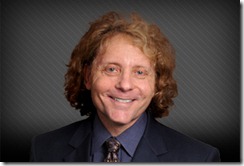How to Write The Perfect Speech Introduction
If you ever moderate a panel or introduce a speaker, you should read this. I want to prevent you from being that host who bores your audiences to tears from the very start by introducing guests with the blandness of a Wikipedia page.
I attended a discussion in New York City last week featuring the creator, director, and writer of AMC’s Mad Men, Matthew Weiner.
The program’s moderator was Thane Rosenbaum. Although Mr. Rosenbaum has impressive bona fides (he’s an author, novelist and law professor), I had never heard of him and wasn’t expecting much. He ended up being one of the best moderators I’ve ever seen.
This article is going to focus on two of the things he did right during the evening – and what you can learn from them.
First, his introduction of Matthew Weiner was perfect, and serves as a model for speechwriters:
“James Madison, the fourth president of the United States and one the authors of its Constitution, would be surprised to learn that his name would one day become better known for where Don Draper works.
Madison supplied the avenue, but the hard-drinking, skirt-chasing executives of the golden age of advertising would eventually inspire TV writer Matthew Weiner to create Mad Men and its romance with the New York City of the early 1960s, with its revolving doors of businessmen wearing fedoras, halos of cigarette smoke everywhere, incestuous office politics, stiff drinks during work hours, blatant racism and casual anti-Semitism.
These were the days before the pill, before drivers buckled up with seatbelts, before anyone had ever heard the words sexual harassment or civil rights, before long hair was in and Brylcreem was uncool, when no one took the Surgeon General’s warnings seriously or gave up red meat, when wars were always regarded as noble, when going to the moon was something Jackie Gleason said, and not something astronauts could actually do.
Man Men depicts a cosmopolitan Camelot, centering on a Kennedy-esque family in Ossining, alluringly attractive but fatally flawed.
With its critical praise and legion of obsessive fans, Mad Men is striking a nerve in the American psyche, and, ironically, it’s doing so a time when traditional advertising has lost some of its glamour. Tobacco companies have become pariahs and magazines are on life support. Now it’s all about eyeballs on screens, and all eyes are on Mad Men.”
© 2010 Thane Rosenbaum
Mr. Rosenbaum succeeded with this introduction because:
- He set the mood for the evening perfectly. In just two minutes, he transported the audience from the Lexington Avenue of 2010 to the Madison Avenue of 1961.
- He didn’t make it about himself. He knew the audience was there to see Matthew Weiner, so he spoke only as long as necessary to set the stage – and not a moment longer.
- He used short, evocative phrases (“halos of cigarette smoke,” “before long hair was in and Brylcreem was uncool”), allowing the audience to engage with his words by forming specific mental images.
- In his third paragraph, he effectively used a speech device called anaphora – or repetition – to set up each of his examples. He began phrases with the word “before” four times and the word “when” three times.
- He didn’t list Mr. Weiner’s achievements. The audience was already familiar with Weiner’s work and didn’t need additional details since the relevant ones would emerge throughout the conversation anyway.
- He delivered his opening with energy, varied his vocal delivery, and paused in all the right places.
Second, you know that moment after the moderator welcomes the guest to the stage when the two shake hands and awkwardly make their way to their seats?
Mr. Rosenbaum gracefully prevented that moment. During the introduction, he stood at a lectern with two empty seats to his left. When he said, “Ladies and gentlemen, Matthew Weiner,” he remained at the lectern until Mr. Weiner took his seat. Only then did he walk across the stage and take his seat. It’s a small point, but an important one for the professional speaker.
Learn from Mr. Rosenbaum. Take your introductions as seriously as any other part of your presentation. By doing so, you will set the perfect tone for your program while establishing yourself as an expert speaker from the very first moment.
Don’t miss a thing! Click here to join our mailing list.




Another great “mini lesson” to spice up my day. Great stuff. I can never learn enough about best communications practices and the recent seminar of yours I attended recently in Sarasota has been a super shot in my arm to stay updated.
Margi – What a lovely comment to kick off the day. Thank you for taking the time to comment, and please don’t be a stranger on the blog! Hope to see you in Sarasota again soon…
I am definitely passing this one along to the boss. Thanks!